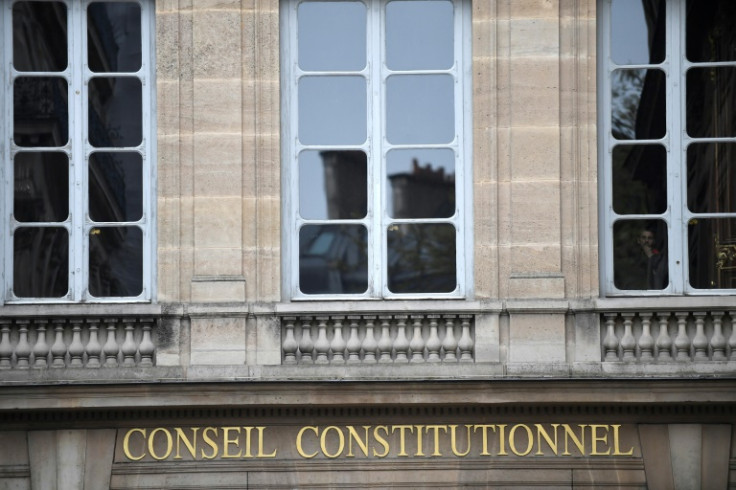French Court To Rule On Controversial Immigration Bill

France's highest constitutional authority will on Thursday issue a keenly-awaited verdict on whether an immigration bill adopted under pressure from the far-right is in line with its basic law.
The bill is one of the flagship reforms of President Emmanuel Macron's second term but its text had to be hardened under pressure from the right and caused a revolt among lawmakers from the ruling party.
It makes access to family reunification and social benefits tougher, introduces immigration quotas determined by parliament and includes measures for dual-national convicts being stripped of French nationality.
Interior Minister Gerald Darmanin, who has championed the bill, acknowledged that certain "measures are manifestly and clearly contrary to the constitution."
In an effort to calm tensions and find a solution, Macron submitted the legislation to the Constitutional Council for review.
The Council has the power to strike out some or even all of the legislation if deemed out of step with the constitution.
Macron defended the legislation, however, saying it was needed to reduce illegal immigration but also to facilitate the integration of documented arrivals.
But dozens of NGOs have slammed what they described as potentially the "most regressive" immigration law in decades.
Tens of thousands of people took to the streets across the country at the weekend to protest the measures.
The bill comes as Macron seeks to curb the rapid rise of the far-right, expected to make considerable gains in June's European elections.
But some political observers accused Macron of seeking to pass the buck onto the Constitutional Council.
"It's a dangerous game because you can never prejudge the Constitutional Council's decision, and because it dishonors the Council and the constitution," said Jean-Philippe Derosier, a constitutional law expert.
The Constitutional Council has already registered its displeasure, saying it is not "a chamber of appeal against the choices made by parliament."
While the council is a legal body, it takes into account political and social context.
The council consists of nine members known as "les sages" ("the wise ones").
Its president is Socialist Party grandee Laurent Fabius, a former prime minister who also served as the finance and foreign ministers.
It is a rare situation in the history of the Council, which was established by the 1958 constitution that instituted the Fifth Republic.
"Referring to the Constitutional Council is not a shocking solution in itself," said Anne Levade, an expert in public law.
It is "of course, a little more shocking", she added, when members of the government are convinced of "the unconstitutionality of certain provisions".
Around a quarter of the 251 lawmakers in Macron's camp voted against the bill or abstained, and several left-wing ministers have registered their opposition to the bill. Health Minister Aurelien Rousseau resigned.
Then-prime minister Elisabeth Borne said in December that the text "would have to evolve" once it had been examined by the Constitutional Council.
"The Constitutional Council has been instrumentalised, trapped by the government," said Serge Slama, a public law professor at the University of Grenoble-Alpes and critic of the legislation.
Derosier said it was not the first time that a government maintains controversial provisions in a bill in order to secure a vote.
"But it is the first time that this strategy has been proclaimed and recognized as such," he said.
"If the law is censured, it is no longer the government that will be criticized, whereas it is the government that should bear this political responsibility," added Derosier.
France has a long tradition of welcoming refugees and immigrants, but a rise in the number of asylum seekers, a chronic affordable-housing shortage, and a cost-of-living crisis have worsened social tensions in the country.
© Copyright AFP 2025. All rights reserved.





















